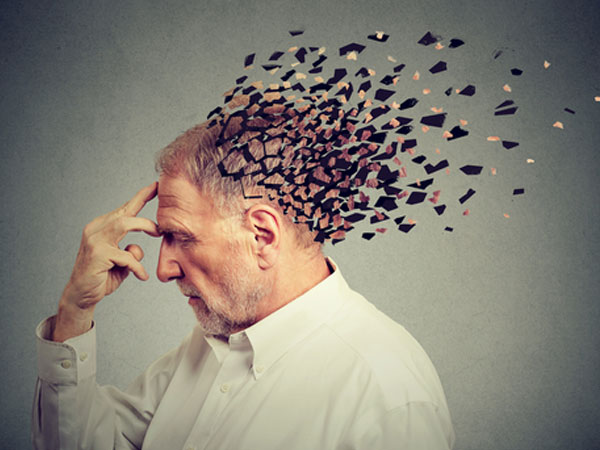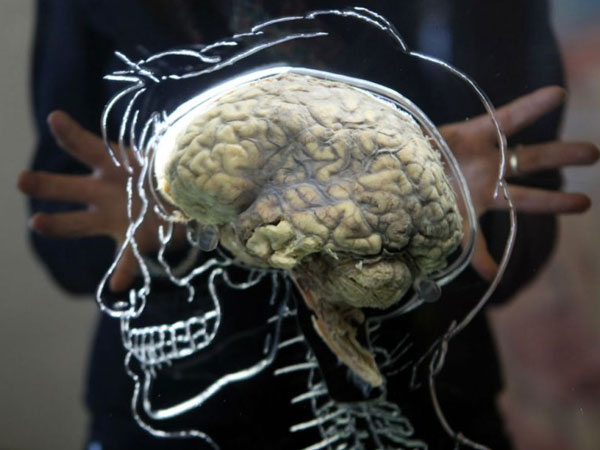Just In
- 52 min ago

- 4 hrs ago

- 5 hrs ago

- 10 hrs ago

Don't Miss
- Finance
 1:3 Bonus Share, Rs 13.25/Share Dividend: Buy Maharatna PSU, TP Rs 355, Fundraise Approved
1:3 Bonus Share, Rs 13.25/Share Dividend: Buy Maharatna PSU, TP Rs 355, Fundraise Approved - Sports
 Who Won Yesterday's IPL Match 33? PBKS vs MI, IPL 2024 on April 17: Mumbai Indians Escape Last-Ditched Fight by Punjab Kings To Win
Who Won Yesterday's IPL Match 33? PBKS vs MI, IPL 2024 on April 17: Mumbai Indians Escape Last-Ditched Fight by Punjab Kings To Win - Movies
 Do Aur Do Pyaar OTT Release Date & Platform: When & Where To Watch Vidya Balan’s Film After Theatrical Run?
Do Aur Do Pyaar OTT Release Date & Platform: When & Where To Watch Vidya Balan’s Film After Theatrical Run? - News
 BRS Chief K Chandrasekhar Rao Slams BJP, Says K Kavitha's Arrest Is Vendetta Politics
BRS Chief K Chandrasekhar Rao Slams BJP, Says K Kavitha's Arrest Is Vendetta Politics - Automobiles
 Aprilia RS 457 Accessories: A Detailed Look At The Prices
Aprilia RS 457 Accessories: A Detailed Look At The Prices - Education
 Karnataka SSLC Result 2024 Soon, Know How to Check Through Website, SMS and Digilocker
Karnataka SSLC Result 2024 Soon, Know How to Check Through Website, SMS and Digilocker - Technology
 Nothing Ear, Ear a With ANC, Up to 42.5 Hours of Battery Launched; Check Price and Availability
Nothing Ear, Ear a With ANC, Up to 42.5 Hours of Battery Launched; Check Price and Availability - Travel
Telangana's Waterfall: A Serene Escape Into Nature's Marvels
The Effects Of Ageing On The Brain
Every system in the body changes inevitably as we age. These changes also include the components of the nervous system. Brain ageing can be considered to be unavoidable to some extent, but not uniform. Ageing affects every brain differently.[1]
Throughout one's lifetime, the brain changes more than any other part of the body. From the time the brain begins its development (during the third week of gestation) to old age, the complex structures and functions of the brain keep changing.[2]
Read on to know how the brain changes over time and also the steps that can be taken to reduce the rate of this decline.

The Human Brain
The human brain (at about 1.3 kg in weight) possesses around 100 billion neurons that are interconnected via trillions of synapses[3] . This in itself exemplifies the magnificent engineering that our brain has covered.
During the first few years of one's life (during the infant and toddler years), the brain forms about one million neural connections almost every second. The last areas of the brain to mature are the frontal lobes - the area that manages the executive functions such as working memory, planning and impulse control. In some cases, this is not fully developed until one reaches 35 years of age.[4]
How Brain Cells Work
Neurons or the nerve cells are responsible for processing and sending information throughout the brain. These cells are also responsible for sending information from the brain to the muscles and organs of the body.[5]
The following three processes are important for the neurons to function and survive[6] :
• Communication: An electrical charge is generated whenever a neuron receives signals from other neurons. This electrical charge travels to the synapse (a small gap where neurotransmitters are released and moved to another neuron).
• Metabolism: This process includes all the chemical reactions that occur in a cell for its functionality and survival. For these reactions to occur, oxygen and glucose are required. The oxygen and glucose are obtained from the blood flowing to the brain.
• Remodelling, repairing and regeneration: Neurons need to constantly keep repairing and maintaining themselves. There are regions of the brain that also continue to make new neurons. Glial cells (other types of brain cells) play a major role in supporting neurons.
The brain also has a huge network of blood vessels. The brain receives about 20 per cent of the body's blood supply.

Symptoms Of Ageing Brain
As one ages, the brain (along with other systems of the body) begins to gradually decline. Memory slips are highly common in the elderly (however, even young adults experience minor memory slips at times). When it happens in the elderly, then it is usually associated with dementia or Alzheimer's disease.[7]
However, one should know that Alzheimer's and other dementias are not part of the normal ageing process.[8]
The following are the common memory changes or the symptoms that one can associate with normal ageing of the brain[9] :
• Multitasking ability: Slowed memory processing can make planning parallel tasks quite difficult.
• Difficulty in learning new things: Retaining and committing new information to memory can take longer than usual.
• Remembering appointments: Unless the memory is jogged, it could be difficult remembering appointments that are safe in the memory storage.
• Recalling names and numbers: Memory of names and numbers is associated with something known as the strategic memory. This seems to decline as one ages.
Some studies show that about one-third of old people struggle with declarative memory (memories of events and facts that have been stored and can be retrieved when required) [10] . Other studies have indicated that about one-fifth of 70 plus people are able to perform cognitive tests just like any 20-year-old would do.[11]

How The Structure Of The Brain Changes With Age
The following are some of the structural changes that occur when the brain ages[12] :
• Cortical density: Declining synaptic connections lead to the thinning of the outer-ridged surface of the brain. When there are fewer connections, it can cause slower cognitive processing.
• Brain mass: The areas involved in high cognitive function and encoding new memories (frontal lobe and hippocampus) begin to shrink. This begins to happen at about 60 years of age.
• Neurotransmitter systems: According to research, with ageing, the brain begins to generate less chemical messengers. There is a decline in acetylcholine, dopamine, serotonin and norepinephrine activity. This attributes towards the decline in cognition and memory. This also leads to increased depression.
• White matter: Myelinated nerve fibres are present in the white matter. These nerve fibres are bundled into tracts and are responsible for carrying nerve signals between brain cells. With age, myelin shrinks. This leads to slower processing and reduction in cognitive functionality.

Ways To Delay Effects Of Ageing On The Brain
In spite of ageing, one can still continue to be mentally sharp. For this to happen, one needs to work on the mental muscles each and every day. Activities that involve concentration can help in strengthening the mind[13] .
1. Mental stimulation[14]
It is suggested that after 40, one should take up a new course, such as learning a new language or getting involved in art classes. It could either be a formal class or learning lessons on your own. The nerve cells will begin to grow and the connection would keep strengthening as long as you keep learning something new. You can also take up hobby-based classes such as painting or carving, which you always wanted to learn.
Such courses would strengthen the part of the brain that controls the spatial relations and would improve your ability to put things together. Getting involved in sports such as badminton or learning to play musical instruments can help you sharpen your hand-eye coordination along with reaction time reflex. Playing games like a crossword puzzle, chess, scrabble, etc., also keeps your brain active.
2. Diet and supplements[15]
A deficiency in vitamin B12 or B6 can cause deterioration of the nervous system leading to memory loss. After 40, one should focus on a diet that is high in Vitamin B6, B12 and folate. B6 can be found naturally in beans and pulses. B12 is found in meat and dairy products. Folate can be obtained from spinach, beans, fortified cereals and asparagus.
3. Social interactions[16]
For good brain health and overall wellness, one should maintain a network of connections with other people. When connected strongly to other humans (family and friends), one is less likely to face stressful situations.
4. Exercise[17]
When you keep your body fit, your mind also stays fit. Middle-aged people are always advised to indulge in yoga, aerobic exercise or martial arts regularly in order to boost their mental ability. Research has also shown that walking regularly for at least 3 days a week can give a 15 per cent boost in mental functioning. When there is an excess level of cortisol (a stress hormone), the hippocampus shrinks. Indulging in yoga, meditation and breathing exercises can help in reducing stress levels.
Avoiding smoking and excess alcohol along with getting enough sleep also goes a long way in keeping your brain healthy and young.[18]
Recent Discoveries In Brain Ageing
Continuous research has led to several discoveries that aim at solving the brain-ageing conundrum. A couple of them are as follows:
1. Stem cells[19]
Research students along with the guidance of their faculty have discovered the fact that the stem cells in the brain's hypothalamus are responsible for controlling how fast ageing occurs in one's body. The research also reported that by replenishing stem cells, it is possible to slow and even reverse some of the aspects of ageing.
2. SuperAgers [20]
SuperAgers is a term used for a group of people who are 80 years of age or above but possess memories as sharp as any healthy person decades younger than them. Research conducted revealed that the brains of SuperAgers shrink at a much slower rate compared to other people their age. This allows for resistance to the typical memory loss that is ideally observed with age (this reveals that age-related cognitive decline is not inevitable).
To Conclude...
It is clear that changes in the brain occur with chronological age, however, it is yet to be completely proven as to at what rate the change happens when attributed to the biological age of the brain.[21]
A lot of research is still under progress to identify the true mechanisms of ageing and find ways to alleviate the age-associated disorders (in particular, dementia). Studies have also shown that a healthy lifestyle, which aims at reducing cardiovascular risk, benefits the health of the brain to a great extent.[22]
- [1] Peters R. (2006). Ageing and the brain.Postgraduate medical journal,82(964), 84-88.
- [2] Albert M. S. (1997). The ageing brain: normal and abnormal memory.Philosophical transactions of the Royal Society of London. Series B, Biological sciences,352(1362), 1703-1709.
- [3] Herculano-Houzel S. (2009). The human brain in numbers: a linearly scaled-up primate brain.Frontiers in human neuroscience,3, 31.
- [4] Ackerman S. Discovering the Brain. Washington (DC): National Academies Press (US); 1992. 6, The Development and Shaping of the Brain.
- [5] Sidiropoulou, K., Pissadaki, E. K., & Poirazi, P. (2006). Inside the brain of a neuron.EMBO reports,7(9), 886-892.
- [6] Lodish H, Berk A, Zipursky SL, et al. Molecular Cell Biology. 4th edition. New York: W. H. Freeman; 2000. Section 21.1, Overview of Neuron Structure and Function.
- [7] Jahn H. (2013). Memory loss in Alzheimer's disease.Dialogues in clinical neuroscience,15(4), 445-454.
- [8] Dumas J. A. (2015). What is Normal Cognitive Aging? Evidence from Task-Based Functional Neuroimaging.Current behavioral neuroscience reports,2(4), 256-261.
- [9] Harada, C. N., Natelson Love, M. C., & Triebel, K. L. (2013). Normal cognitive aging.Clinics in geriatric medicine,29(4), 737-752.
- [10] Murty, V. P., Sambataro, F., Das, S., Tan, H. Y., Callicott, J. H., Goldberg, T. E., Meyer-Lindenberg, A., Weinberger, D. R., … Mattay, V. S. (2009). Age-related alterations in simple declarative memory and the effect of negative stimulus valence.Journal of cognitive neuroscience,21(10), 1920-1933.
- [11] Howieson D. B. (2015). Cognitive Skills and the Aging Brain: What to Expect.Cerebrum : the Dana forum on brain science,2015, cer-14-15.
- [12] Nenadić, I., Sauer, H., Smesny, S., & Gaser, C. (2011). Aging effects on regional brain structural changes in schizophrenia.Schizophrenia bulletin,38(4), 838-844.
- [13] Joubert, C., & Chainay, H. (2018). Aging brain: the effect of combined cognitive and physical training on cognition as compared to cognitive and physical training alone - a systematic review.Clinical interventions in aging,13, 1267-1301.
- [14] Christie, G. J., Hamilton, T., Manor, B. D., Farb, N., Farzan, F., Sixsmith, A., Temprado, J. J., … Moreno, S. (2017). Do Lifestyle Activities Protect Against Cognitive Decline in Aging? A Review.Frontiers in aging neuroscience,9, 381.
- [15] Morris M. S. (2012). The role of B vitamins in preventing and treating cognitive impairment and decline.Advances in nutrition (Bethesda, Md.),3(6), 801-812
- [16] Hikichi, H., Kondo, K., Takeda, T., & Kawachi, I. (2016). Social interaction and cognitive decline: Results of a 7-year community intervention.Alzheimer's & dementia (New York, N. Y.),3(1), 23-32.
- [17] Barnes J. N. (2015). Exercise, cognitive function, and aging.Advances in physiology education,39(2), 55-62.
- [18] Chen, J. C., Espeland, M. A., Brunner, R. L., Lovato, L. C., Wallace, R. B., Leng, X., Phillips, L. S., Robinson, J. G., Kotchen, J. M., Johnson, K. C., Manson, J. E., Stefanick, M. L., Sarto, G. E., … Mysiw, W. J. (2015). Sleep duration, cognitive decline, and dementia risk in older women.Alzheimer's & dementia : the journal of the Alzheimer's Association,12(1), 21-33.
- [19] Jessberger S. (2016). Stem Cell-Mediated Regeneration of the Adult Brain.Transfusion medicine and hemotherapy : offizielles Organ der Deutschen Gesellschaft fur Transfusionsmedizin und Immunhamatologie,43(5), 321-326.
- [20] Sun, F. W., Stepanovic, M. R., Andreano, J., Barrett, L. F., Touroutoglou, A., & Dickerson, B. C. (2016). Youthful Brains in Older Adults: Preserved Neuroanatomy in the Default Mode and Salience Networks Contributes to Youthful Memory in Superaging.The Journal of neuroscience : the official journal of the Society for Neuroscience,36(37), 9659-9668
- [21] Cole J. H. (2017). Neuroimaging-derived brain-age: an ageing biomarker?.Aging,9(8), 1861-1862.
- [22] Gorelick, P. B., Furie, K. L., Iadecola, C., Smith, E. E., Waddy, S. P., Lloyd-Jones, D. M., Bae, H. J., Bauman, M. A., Dichgans, M., Duncan, P. W., Girgus, M., Howard, V. J., Lazar, R. M., Seshadri, S., Testai, F. D., van Gaal, S., Yaffe, K., Wasiak, H., Zerna, C., American Heart Association/American Stroke Association (2017). Defining Optimal Brain Health in Adults: A Presidential Advisory From the American Heart Association/American Stroke Association.Stroke,48(10), e284-e303.
-
 beautyBeauty In A Jar: Can You Make Anti-Ageing Collagen Powder At Home?
beautyBeauty In A Jar: Can You Make Anti-Ageing Collagen Powder At Home? -
 healthAnti Aging Foods: 5 Foods To Stop Your Brain From Ageing And Keep Healthy
healthAnti Aging Foods: 5 Foods To Stop Your Brain From Ageing And Keep Healthy -
 healthDecoding the Complex Process of Aging: Genetics Vs Lifestyle Choices
healthDecoding the Complex Process of Aging: Genetics Vs Lifestyle Choices -
 beautyNon-Alcoholic Wine: Your Key To Age-Defying Skin
beautyNon-Alcoholic Wine: Your Key To Age-Defying Skin -
 beautyDiscover Jennifer Lopez's Skincare Secrets For Glowing Skin
beautyDiscover Jennifer Lopez's Skincare Secrets For Glowing Skin -
 healthCan 'Vitamin C Flush' Cleanse Reverse Ageing?
healthCan 'Vitamin C Flush' Cleanse Reverse Ageing? -
 healthHow Can Thinking Positively About Ageing Help Prevent Memory Loss?
healthHow Can Thinking Positively About Ageing Help Prevent Memory Loss? -
 diet fitnessWhat Is The Effect Of Reducing Calorie Intake On Ageing?
diet fitnessWhat Is The Effect Of Reducing Calorie Intake On Ageing? -
 diet fitnessBenefits Of Pranayama: This Yoga That Can Reverse Molecular Mechanism Of Skin Aging
diet fitnessBenefits Of Pranayama: This Yoga That Can Reverse Molecular Mechanism Of Skin Aging -
 wellnessLoss Of Grip Strength In The Hands May Indicate Premature Ageing
wellnessLoss Of Grip Strength In The Hands May Indicate Premature Ageing -
 wellnessWhy Do We Feel Lonely As We Age? Study Explains Reasons
wellnessWhy Do We Feel Lonely As We Age? Study Explains Reasons -
 parents and childrenEffective Ways To Make Your Home Safer For Ageing Family Members
parents and childrenEffective Ways To Make Your Home Safer For Ageing Family Members


 Click it and Unblock the Notifications
Click it and Unblock the Notifications



